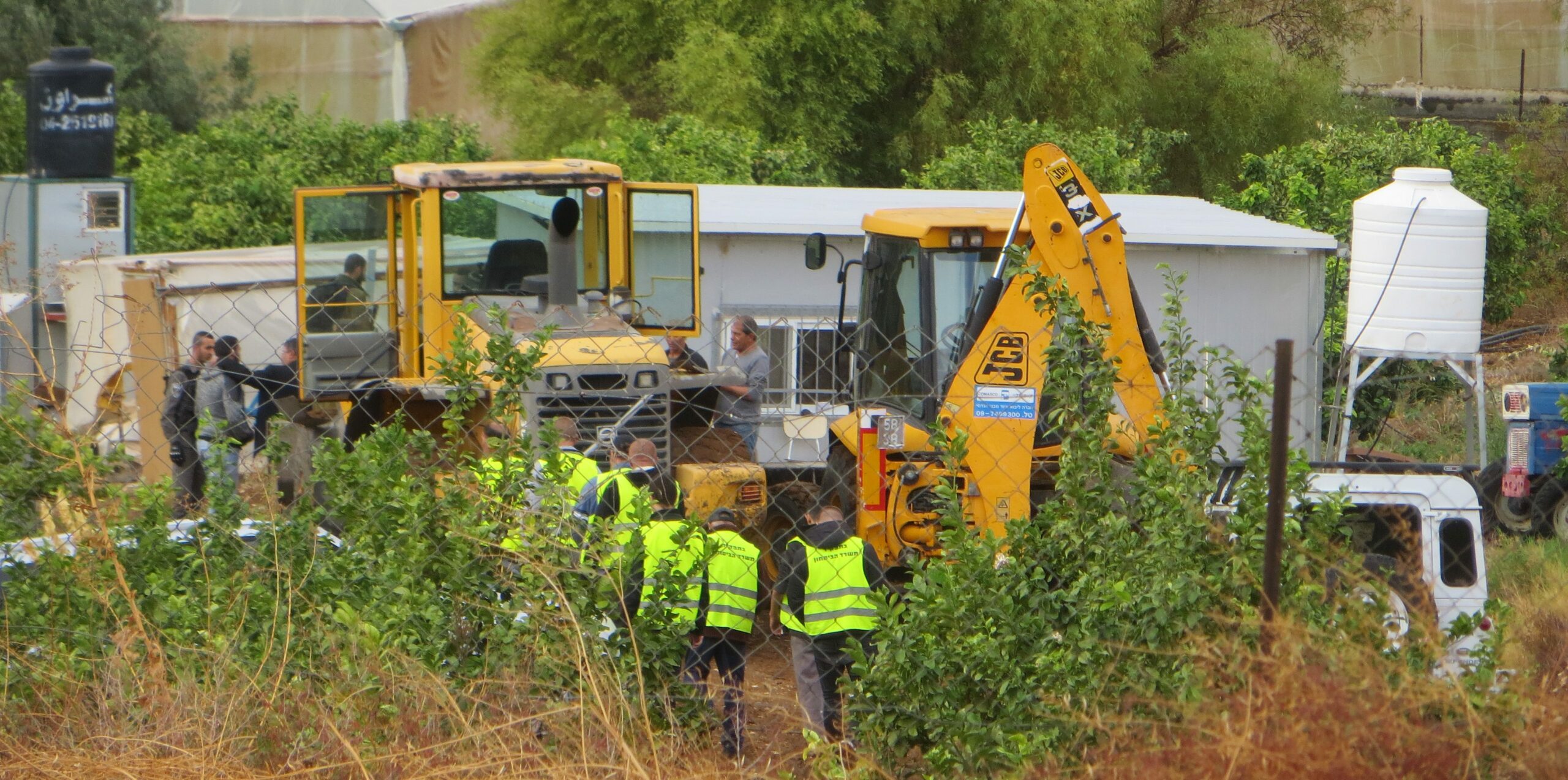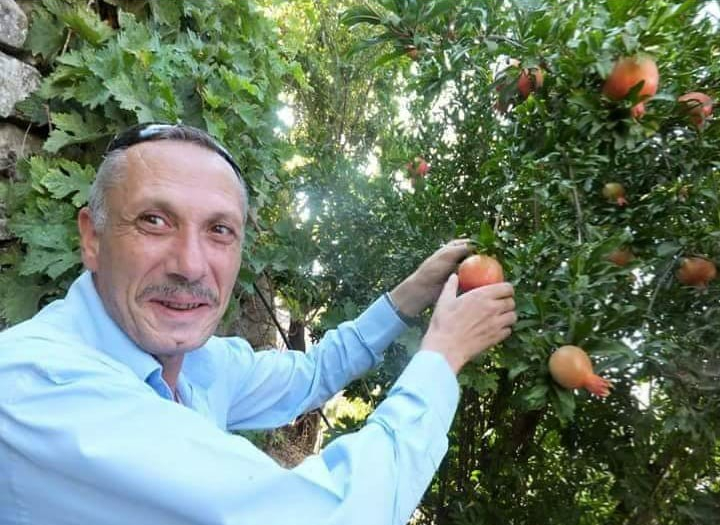By Therezia Cooper & Tom Anderson
Palestinians have called for international action on April 17th 2013 in solidarity with Palestinian prisoners held in Israeli jails. Corporate Occupation has been investigating the companies involved in the Israeli prison system and this article is part of a series of articles and interviews which will be released over the coming weeks focussing on companies providing equipment and services to Israeli jails.
Tom Woodhead is a Palestine solidarity and anti arms trade activist and recently volunteered with the International Solidarity Movement in Palestine. On March 1st 2013, he was arrested by Israeli border police whilst participating in the weekly demonstration in Kafr Qaddum in the West Bank.
Two Palestinians, Belal Jomaa and Nayif Jomaa were also arrested. Tom spent 11 days in detention in Israel before being deported to the UK.
Corporate Occupation caught up with him to find out about his experiences, and to get more information about companies operating in Israeli detention facilities.
Therezia Cooper: Can you tell me about what happened on the day you were arrested?
Tom Woodhead: I was on the demonstration in Kafr Qaddum [a Palestinian village]. There is a weekly Friday demonstration there to try to access the main road to Nablus. We marched down the road as we do every week. There was a quiet spell with the army holding back, so the group was going further forward when the Israelis suddenly charged from the front. There were soldiers coming from the sides as well, so we tried to run away, but we ran into a group of soldiers. This was when they pulled me and the two Palestinians away. There was some struggle and I ended up on the floor. I was beaten at the back of the head. I am not sure what I was hit with as I was face down in the dirt, but someone said it was with the butt of a gun. We have photos of Belal being hit in the head as well.
TC: Were you taken by the army or the border police?
TW: This was the border police. When we were taken they threw stun grenades at the rest of the crowd and took us away further down the road, away from the village and towards Qedumin settlement. During this time I was in a headlock and punched in the face twice. I was bleeding from the nose. At one point my head was pushed against the side of a bulldozer on the road.
Then they took all three of us into Qedumin settlement. They blindfolded us and put the hoods on our jumpers up. Every time I tried to look up they pushed my head down again. Then they loaded their rifles next to our heads. We could hear them click. It was like a mock execution. My legs started shaking, but I was thinking ‘surely they would not do that’?
It is all a bit of a blur, but at some point before we got blindfolded they handcuffed us. I remember because the handcuffs were Hiatt and said ‘Made in England’. I remember thinking ‘fucking bastards’ as I saw the handcuffs. It was the first thought that came into my head. They are handcuffs that are like a solid bit of metal. All you have to do is move your hands a little bit and it hurt. [Hiatt is a now defunct British company; the Hiatt brand is now marketed by Monadnock].
It was obvious that at first they thought I was Palestinian like the others because they kept yelling “Are you Palestinian? Are you a little bit Palestinian?” at me. Then they realised wasn’t.
TC: Where did they take you after that?
TW: We were all put in a police van. All three of us in a tiny little cage. We all had to stand up as it was not a big enough space to sit down. I was still blindfolded so I could not see what it looked like. They took us to the police station in Ariel settlement. When there they let two of us take the blindfolds off, but Nayif had to have his one on longer. They seemed to treat him worse. He was also handcuffed with some kind of cables instead of handcuffs and his hands went blue.
TC: What was the procedure at the police station?
TW: I was taken in for questioning after a few hours. Or, I say questioning, but it was more like being read accusations. It was very soft. I was told by the police that I was getting put on a 10 year blacklist [from entering Israel] and that I had been throwing stones in the demonstration. It was more of a statement than a question and of course not true. From then on I was separated from the Palestinians. I was told they were taken to Megiddo prison inside Israel.
TC: And what happened to you?
TW: The next day I spent in a prison I can’t remember the name of. It was inside Israel. I noticed that they had Samsung monitors in the prison.
I got taken to a court room on Saturday. The police said they had a video of me throwing stones. The judge said “give it to me then”. The police wanted 48 hours to comply, but were given 12. During that time I got taken back to the prison and Sunday morning I got driven back to Ariel for no reason that I could see. The handcuffs they used on me had changed to Tri-Max.
Just before the court was due I was driven back into ’48 [ie the 1948 borders of Israel] and dropped off with the Shabak [the Israeli security agency]. I was dropped off at a service station where they were waiting for me and I was handed over to them. The Shabak drove me to a room in Ben Gurion [airport]. They had all my stuff and put it in front of me and watched me watch them.
They questioned me for 3 or 4 hrs in the airport. They threatened me about my family paying for me going home. It was more presumptions and statements than questions again. My answers were more pleading than answering at this stage as I wanted them to let me get on my flight. At some point I just stopped talking to them and they gave up. They took my driver’s licence which they have never given back.
There were G4S alarm systems on internal walls where I was taken by the Shabak, and also at the Ben Gurion deportation lounge which I was deported from later. It was on an internal wall inside a departure room designed only for deportees and part of the Ben Gurion complex.
TC: But they did not let you get on the flight?
TW: No, they took me to the Givon immigration prison in Ramla. That’s where I was kept for the rest of the time, just over a week.
TC: what were the conditions there like?
TW: I was kept in a cell together with around 15 other people. They have solitary cells but most cells have bunk beds for around 16 people in each cell. There are cockroaches in the walls. There was a big change-over of people all the time. The longest I heard about people having been there was 6 months.
We were all allowed to have phones, but for some reason they refused to let me have pen and paper. Others were allowed this. I was held with people from Sudan, Russia, Ukraine, Egypt and from Yemen. Many people held there were had been working illegally in the county. The Sudanese had been detained on their way in or shortly after.
I spoke to the UK Foreign Office and they came to see me in there. They were interested in my treatment and the mock execution which they had heard about. They said that they would take the complaint seriously but I’m not sure what they will do.
TC: What was the deportation like?
When I got deported they took me to a really grim detention centre at Ben Gurion. I was only there for two hours but one guy had been there for 6 days. It stinks of piss and is really grim. You can see the airport from there but it is not in the airport as such. It is for people who are getting deported soon. There are bunk beds for around 14 people in each room. There was no air and no way of getting exercise. I was only there for two hours. I can’t imagine being there for longer.
I think this facility is run by some special police unit but I’m not sure exactly who they are. They wore jeans and shirt but with an ID badge.
I then got taken straight to the plane and deported on an El Al flight to Heathrow.
TC: And what happened at Heathrow? Because of your circumstances and our experience of being stopped and questioned under Schedule 7 of the Terrorism Act 2000 I know that it was expected that this would happen to you and that you wanted to challenge it? In fact there had been statements issued beforehand saying that you would.
TW: Yeah, I was stopped but they did not actually ask very much. I kept insisting that I was not going to speak and that they were misusing the powers. They were playing good cop and bad cop. There were some threats of me being in trouble etc. if I didn’t talk. I made a kind of deal where I agreed to tell them things that I had already told the foreign office anyway so in the end they mainly asked about what happened in Palestine and about any mistreatment.
The two Palestinians arrested with Tom, Belal Jomaa and Nayif Jomaa, are still being held in Magiddo prison without a trial.
BDS targets: Companies complicit in arrests and detention
Products supplied by the following companies were all observed by Tom Woodhead during his arrest and subsequent detention at different Israeli facilities.
Canon: Canon is a Japanese multinational company listed on the New York and Tokyo stock exchanges with outlets globally. It specialises in cameras, camcorders, photocopiers and printers. Tom reported Canon camera systems being used for photographing arrestees at Ariel settlement police station. Corporate Watch has previously reported Canon equipment being used for the same purpose at the settlement police station in Shah Binyamin.
CTS Thompson: The Tri-Max handcuffs Tom was restrained with are produced by a company called CTS Thompson, owned by the American Combined Systems Inc (CSI) since 2010. Part of its CTS division deals with handcuffs and other restraint equipment for police forces and army. There is evidence that CSI, which manufactures ‘less lethal’ crowd control devices and munitions such as tear gas, export their products to repressive regimes, often with deadly effects. The company’s spent tear gas canisters have been found after demonstrations in the West Bank, and also in Cairo during the uprising in 2011.
Motorola: Communication systems in Givon were provided by Motorola. As Who Profits has reported, Motorola Israel is heavily involved in numerous projects which support the occupation. It provides virtual fences around several Israeli settlements, develops and provides the specialist communication system for the Israeli army and its technology is used in the apartheid wall.
Samsung: Samsung is a South Korean multinational conglomerate. The biggest part of the Samsung group is its publicly traded subsidiary Samsung Electronics, which is the world’s largest mobile phone and TV manufacturer. Samsung monitors were used in the prison Tom was driven to inside Israel.
Elpam Electronics: An Israeli company which develops ‘electronic equipment for challenging security situations’. Its metal detectors were seen being used in the Givon detention centre in Ramle. According to the company web-site, it also makes surveillance, alarm and control systems.
G4S: The presence of G4S equipment in the Ben Gurion deportation lounge only adds to the company’s already substantial involvement with Israeli apartheid. For a full analysis of G4S’ involvement in the occupation, see our G4S archive.



4 Comments
“I cannot remember how many times I have been arrested”: A decade in Israeli prisons | Corporate Watch · 11th April 2013 at 1:54 pm
[…] ← “Are you Palestinian? Are you a little bit Palestinian? They yelled at me”: Experiencing … […]
“It only takes one phone call for us to get you here. We can take you anytime”: Arrested for using Facebook | Corporate Watch · 11th April 2013 at 9:45 pm
[…] Corporate Watch has previously reported, international companies such as Samsung, Canon and Motorola provide equipment used in Israeli […]
“You don’t look for justice in a military court” | Corporate Watch · 16th April 2013 at 7:34 am
[…] Corporate Watch has previously reported, international companies such as Samsung, Canon and Motorola provide equipment used in Israeli […]
‘You don’t look for justice in a military court’ | Dogma and Geopolitics · 1st May 2013 at 12:53 pm
[…] a permit to visit an Israeli prison. The request was turned down. As Corporate Watch has previously reported, international companies such as Samsung, Canon and Motorola provide equipment used in Israeli […]